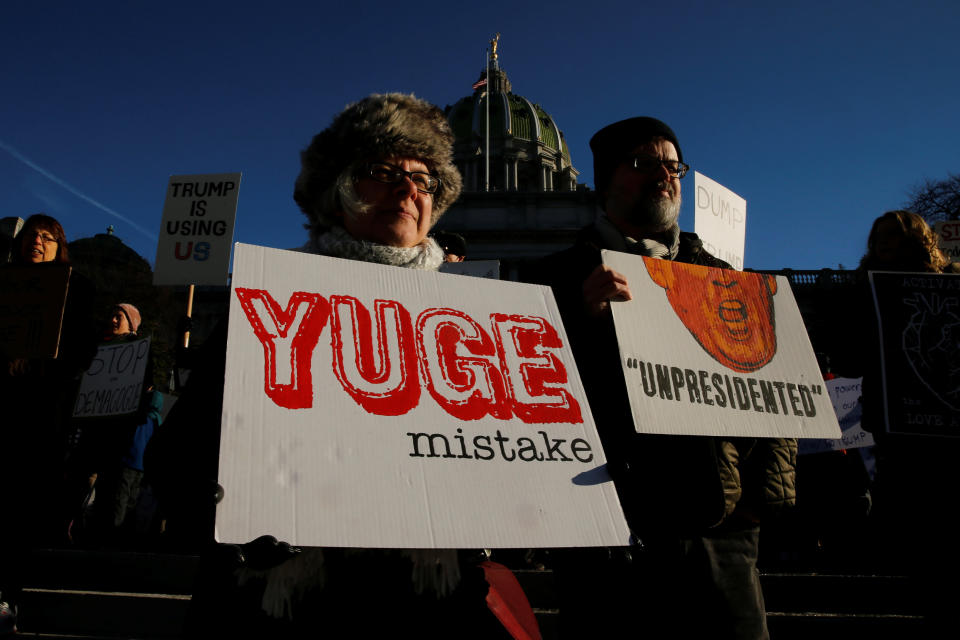American consumers haven't felt this good in 13 years — and they've never been more divided
Following the election of Donald Trump as president, consumer confidence in the US surged to a 13-year high.
But underneath this headline rally, the country is as divided as the election results — Trump lost the popular vote by about 2.8 million votes — and approval ratings would suggest.
“The post-election surge in optimism was accompanied by an unprecedented degree of both positive and negative concerns about the incoming administration spontaneously mentioned when asked about economic news,” said Richard Curtin, chief economist for the University of Michigan’s survey of consumers.
“The importance of government policies and partisanship has sharply risen over the past half century.”
The UMich preliminary reading on consumer sentiment in January showed that the headline reading on confidence remains just below the 13-year high hit last month. Friday’s report also showed that consumers’ assessment of current economic conditions hit the highest since 2004 in January.
Consumer expectations, however, is where the sharp divide between those optimistic about the Trump economy and those with a negative view on the President-elect’s plans really shows up.

From 1960 to 2000, positive and negative references to government policies came from just about 6% of consumers responding to the UMich survey. In the last six years, this has jumped to 20%.
In January, however, this spiked to 44% of consumers mentioning the government either positively or negatively. And the divide was sharp.
“This extraordinary level of partisanship has had a dramatic impact on economic expectations,” Curtin said.
“In early January, the partisan divide on the Expectations Index was a stunning 42.7 points (108.9 among those who favorably mentioned government policies, and 66.2 among those who made unfavorable references). Needless to say, these extreme differences would imply either strong growth or a recession.”
Given that neither rip-roaring growth or a recession seems likely, Curtin says these extreme readings should temper in the coming months.
But while survey data like the UMich consumer sentiment report have surged following Trump’s election, the attention should now focus on whether the hard data that tracks things like hiring, business investment, and consumer spending turns positive, too.
And on this front, economists still have some skepticism that the “Trump Bump” in optimism will turn into something meaningful on the ground.
Earlier on Friday, we learned that retail sales in December were a bit of a mixed bag. The headline reading showed sales rose 0.6% over the prior month, roughly in line with expectations, but that excluding auto sales the report was overall disappointing. Only nonstore retailers — which captures e-commerce sales — showed a strong print in December.
Following that report, Ian Shepherdson, an economist with Pantheon Macroeconomics, said, “These data are subject to potentially large revisions but on the face of it, they indicate that the surge in consumers’ confidence since the election has not yet translated into spending. This might be nothing more than a question of lags, but we wonder if the consumer confidence surveys do a relatively poor job of capturing the response to the election of young people, especially minorities, who voted heavily for Clinton.”
And Friday’s UMich survey, released just 90 minutes later, more or less confirmed Shepherdson’s analysis.
Consumers on balance look pretty bullish.
But underneath this headline there is a huge contingent of American consumers that aren’t thrilled about the election, aren’t thrilled about the economy, and aren’t yet changing their behaviors.
—
Myles Udland is a writer at Yahoo Finance. Follow him on Twitter @MylesUdland
Read more from Myles:

 Yahoo Finance
Yahoo Finance 
